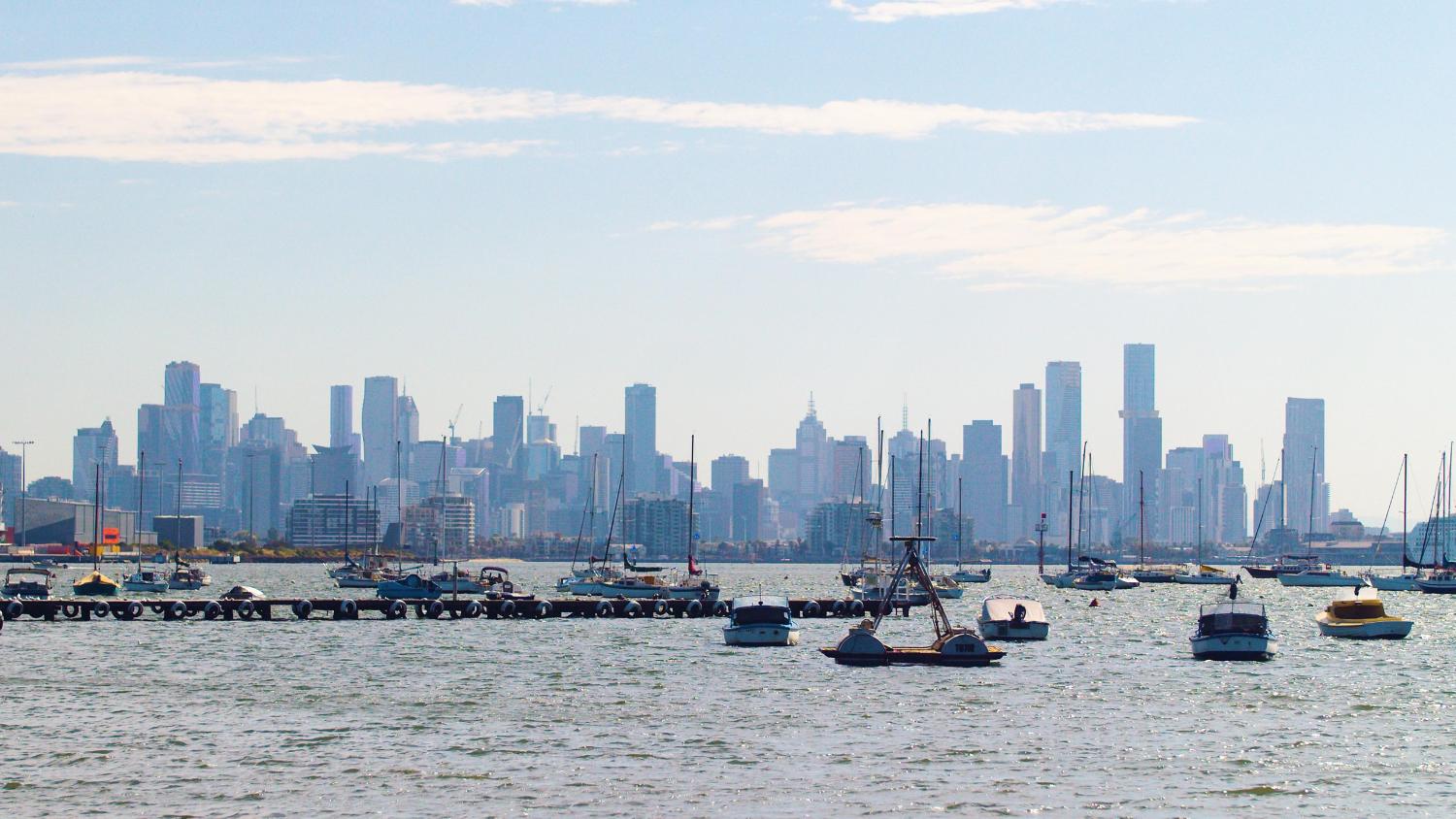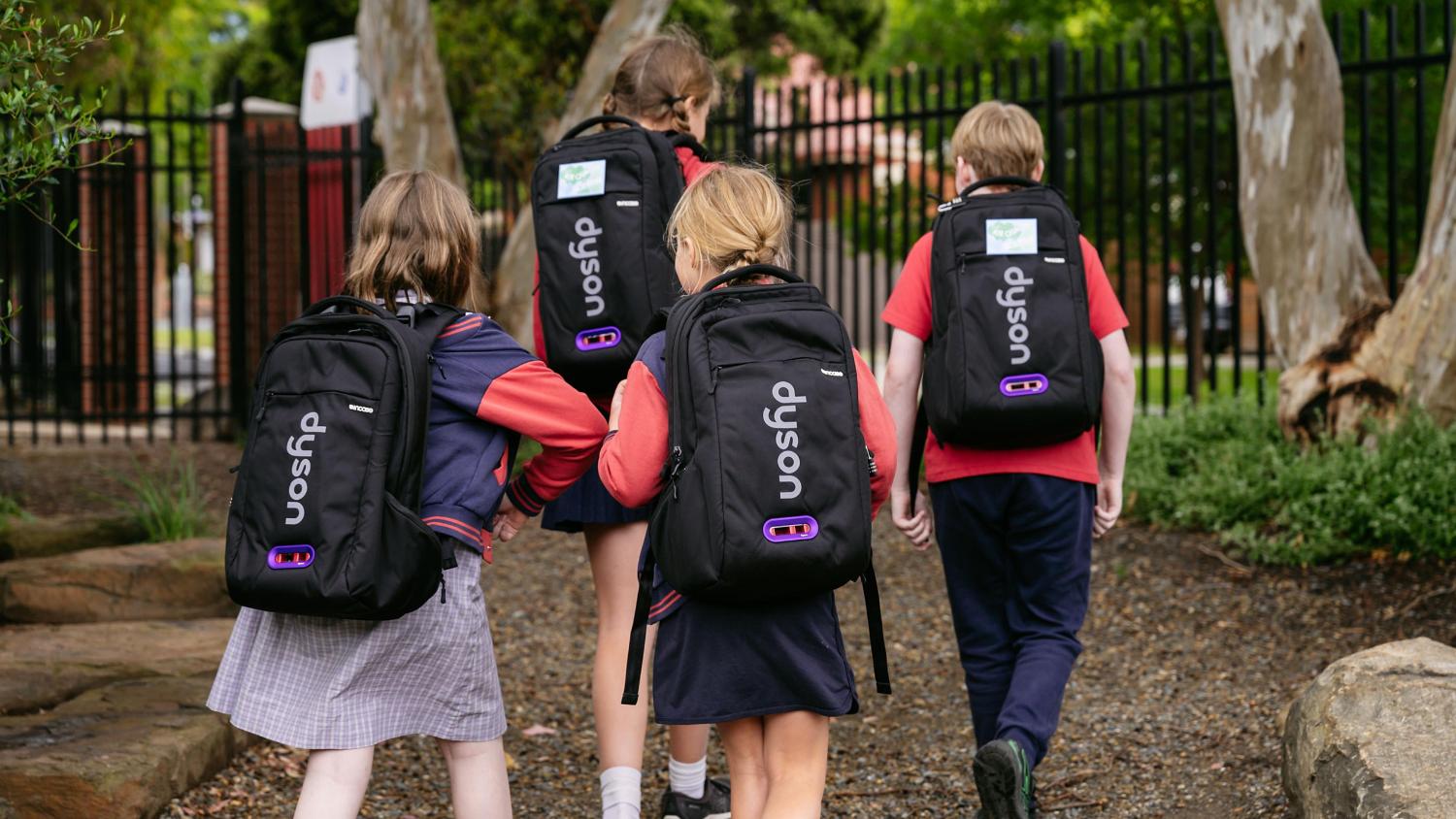
Breathe Melbourne
Dyson air quality backpacks track air pollution exposure of hundreds of children in Australian-first citizen science study
● Students from six primary schools in Melbourne’s inner west will wear Dyson’s air quality backpacks to capture air pollution data on their daily school commutes.
● Academics from Deakin University will examine the data collected by the students and empower them to use the data to identify strategies that can improve the quality of air they breathe each day.
● The study, titled ‘Breathe Melbourne’, aims to nurture children’s scientific curiosity, raise community awareness and inform government policy in tackling air pollution levels in cities, which can contribute to the development of asthma.1

Deakin University, Australia and Dyson have announced a pioneering citizen science study measuring children’s exposure to air pollution on their school commute in Melbourne’s inner west. Students will wear Dyson’s air quality backpack to collect air quality data on the move. The study, titled ‘Breathe Melbourne’ is led by Deakin University in collaboration with Dyson. It aims to equip, empower and educate children as air quality scientists, raise community awareness and collect valuable data to help tackle inner-city air pollution.
Over 300 primary school students and 12 teachers across six schools will be given the air sensing backpack technology to carry to and from school for a period of four days. The data will be analysed by Deakin University researchers, who will work with participating students on behavioral solutions to improve the quality of air they breathe. Students will also complete a survey to identify how the study has impacted their understanding of air pollution and engagement in science and technology. Participating schools will have access to an optional air quality educational resource provided by the James Dyson Foundation (JDF). This resource encourages students to work like real engineers to investigate air pollution and evaluate existing solutions.
Kate Lycett, Senior Research Fellow at the School of Psychology at Deakin University and Lead Researcher for Breathe Melbourne commented:
“Breathe Melbourne is a research project that aims to empower children as air quality scientists. As our future leaders, they will be faced with many complex problems including air pollution and its effects. We hope the project will nurture children’s scientific curiosity, improve our understanding of air pollution, and ultimately lead to behaviour and government policy changes to reduce exposure to air pollution in Melbourne’s inner west.”
Making the invisible, visible
Re-working existing sensing technology used in Dyson air purifiers, Dyson’s air quality backpack is a portable air sensing device. With on-board sensors measuring PM2.5, PM10, NO₂, VOCs and CO₂, a battery pack and GPS, it collects air pollution data on the move. The backpack was initially developed by Dyson engineers for the Breathe London Wearables Study – a similar project in the UK in collaboration with King’s College London and the Greater London Authority. As a result of the study, over 31 per cent of the children said they would change the way they commute to and from school to reduce their exposure to air pollution.
Matt Jennings, Category Director of Environmental Care at Dyson, said:
“Our engineers have used knowledge derived from years of experience and research in air cleaning technology to develop intelligent sensors, compact enough to fit in children’s backpacks. Following the success of the 2019 Breathe London Wearables study in the UK, we continue to see the benefit of using our air monitoring technology to make the invisible visible - highlighting air pollution exposure indoors, outdoors and on the move. We hope that Breathe Melbourne increases awareness about the problem of air pollution and educates individuals on how they can reduce their own daily exposure, while providing robust scientific evidence of the outdoor and indoor pollution we are exposed to every day.”
Professor Lou Irving, Director of Respiratory and Sleep Medicine and Director of Clinical Training at the Royal Melbourne Hospital explained:
“Air pollution is predicted by the World Health Organisation to be one of the greatest environmental risks to health.[1] That's because of the amount of poor air quality throughout the world, but also the diverse adverse health effects it can have. Melbourne’s inner west is a hotspot for active asthma in children, with a higher prevalence of asthma admissions and presentation than most other areas of Australia.[2] The Breathe Melbourne Study is very important because it focuses on a group of children who we know are already at risk because of poor air quality, and it’s aimed at helping to reduce the risk, as well as aiding the management of asthma symptoms."
Professor Mark Patrick Taylor, Chief Environmental Scientist for Environment Protection Authority Victoria (EPA) commented:
“EPA works to protect the health of our environment and the health of Victorians. We know any level of air pollution can negatively affect human health and our environment – this project will add to our existing air quality monitoring to drive evidence-based insights, health advice and decision making.”
Jackie Green, Principal at Spotswood Primary School, one of the participating schools commented:
“Spotswood Primary is excited to be a part of the Breathe Melbourne project! Living and learning close to some of Melbourne’s busiest roads, it is important for us to understand more about the quality of the air in our local area. We are passionate to find out about choices we can make to have a positive impact on the air quality in our community and look after our health.”
The primary schools will commence data collection in the coming months, with the findings due to be published later this year.
Press contacts
-
USA
Emails us at USPR@Dyson.com
1330 West Fulton Street, 5th Floor, Chicago IL, 60607
-
Social media
- Twitter: @dyson
- YouTube: youtube.com/dyson
- Facebook: facebook.com/dyson
- Instagram: @Dyson
- Instagram: @dysonbeauty
- LinkedIn: Dyson
- Pinterest: Dyson Technology

